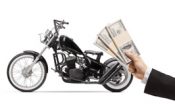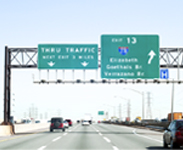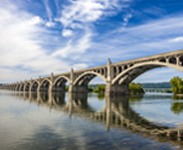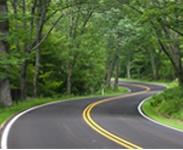
Home > Motorcycle Community > Tips for Motorcycle Riders > Your Best First Motorcycle: A Buying Guide
Your Best First Motorcycle: A Buying Guide
The call of the open road sings your name, and you want to join the legion of motorcycle riders you see living out your dream. You have taken the class and have your motorcycle license. Buying your first motorcycle is all that is left. This is a significant purchase, and getting it right can dictate how your venture into motorcycle riding will go. This motorcycle buying guide will walk you through what you should consider to help you choose the best first motorcycle.
Intended Use
Before you start shopping for a motorcycle, you need to decide how you want to enjoy your riding experience. Do you want to commute, take a weekend cruise, travel on long trips, or dominate track day? How you answer this question will dictate the type of first motorcycle to buy.
Sport Bikes
Sport bikes epitomize speed and track racing, emphasizing raw power and unparalleled handling. This makes them attractive to beginner enthusiasts who crave performance and excitement. However, new riders should approach sport bikes with caution. Starting with lower-powered bikes allows novices to develop foundational skills before advancing to the more powerful high-performance models. The Kawasaki Ninja 400 earns its reputation as one of the best first motorcycles for women and men, blending approachable performance with agile handling and a sleek design.
Cruiser Bikes
Cruiser bikes exude the classic “biker” style. Prioritizing comfort over speed, these motorcycles are a testament to relaxed rides. V-twin cruiser bikes stand out, appealing to beginners and seasoned riders for their laid-back riding experience. The distinctive exhaust sound amplifies their appeal. The Harley Davidson Sportster is often hailed as the best first motorcycle cruiser for its balance of power and handling, making it an ideal choice for beginners.
Touring Bikes
Touring motorcycles are ideal for those seeking to take long rides. While they offer an exceptionally smooth ride and amenities designed for comfort during long journeys, their substantial size and weight can pose challenges for beginners. It is generally advised against choosing a touring bike when buying your first motorcycle.
Naked Bikes
Naked bikes have become an increasingly popular style. They harmonize the attributes of sport and cruiser bikes with an upright riding position. This riding posture makes them a great first motorcycle. They are not ideal for long rides but are incredibly fun when cruising around town. Their maneuverability makes them perfect for someone developing their skills. The Yamaha MT-07 often stands out as the best naked bike for beginners, boasting a perfect balance of accessible power, agile handling, and rider-friendly features.
Adventure Bikes
Adventure bikes are a combination of a motorcycle and an off-road bike. They are perfect for riders who relish both off-roading and conventional riding experiences. Their purpose and capabilities extend to touring wild, remote areas—think deserts or high mountains. However, they tend to be big and heavy, making them less than ideal as your first motorcycle.
Cafe Racer
Cafe racers are small, swift, and agile. Characteristics such as lightweight build, high customizability, and compact size define these bikes. For potential buyers, cafe racers are a great first motorcycle. They will work well for cruising around town on the weekend or commuting. They have a low center of gravity and a comfortable riding position, making them the best first motorcycle for someone to develop the fundamental skills. The Husqvarna Vitpilen 401 is often recommended as the best cafe racer for beginners, with manageable power delivery and nimble handling.
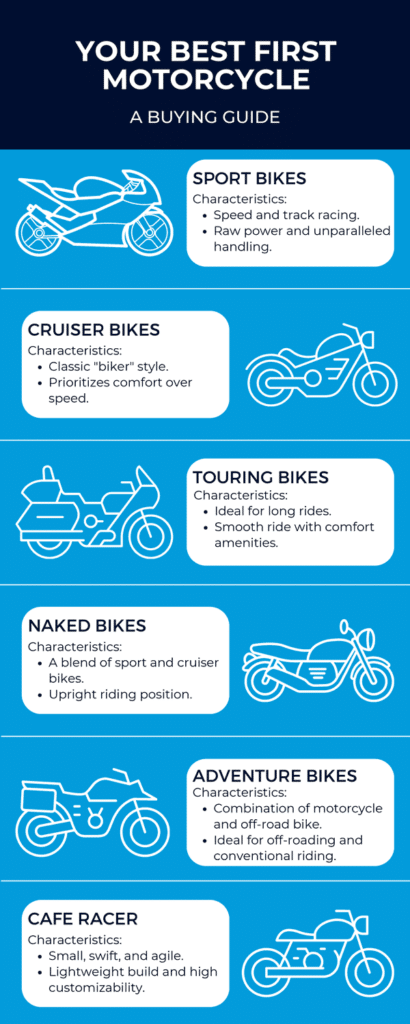
Reviews and Reputation
Do some research when buying your first motorcycle. You can read reviews or owner experiences online. Head to your local bike night or event and talk to people you see with the bike you want. You can learn first-hand how the bike handles, maintenance requirements, and real-world ownership experience. A bike with a reputation for having maintenance problems is not a good first motorcycle to buy.
Do Not Start With Your Dream Bike
Your dream bike is not the best first motorcycle. Align your bike choice with your current skill level. Do not let your dreams overshadow practicality. It is not a question of if but when you will drop your bike. You are more likely to do so when you are a beginner rider. So, dropping your more affordable learner bike is better than the expensive dream motorcycle. Generally, people need about six months of riding experience before advancing to their next motorcycle. However, this greatly depends on how often you ride, where you ride, and traffic conditions. Ride your own journey and try not to compare yourself to others. There is no shame in it taking you longer to develop your skills and confidence
Your Experience Level
Consider your experience level when deciding how big a motorcycle is and how powerful an engine you should buy. If you lack experience, starting on a small bike is best. This lets you focus on developing your fundamental skills without the risk of the motorcycle overpowering you. If you have some experience, you should already have some foundational skills, making considering a slightly larger bike safer. Generally, it is best to move up gradually. That way, your motorcycle grows with your confidence and skills.
Horsepower
The easiest way to define motorcycles is by their engine size. Motorcycles most often recommended for beginners are in the 250-400cc range. However, anything 600 and under is considered safe. Some people find that the smallest motorcycles lack the necessary power to accelerate and maintain speed on highways safely.
Motorcycles over 600 are noticeably heavier and more powerful. However, the type of motorcycle will influence performance. For example, a 1000cc sport bike will accelerate faster than a 1200cc cruiser. So, don’t base your bike choice solely on engine cc size.
Ergonomics
Motorcycle manufacturers take ergonomics into account when crafting their bikes. However, not all bikes will work well with all body types. Different styles tend to feature a body riding position that works well for people of different body types. Try to sit on as many motorcycles as possible. This will help you narrow down which bikes feel the most comfortable.
Sport bikes tend to have higher seats, making them more challenging for people who are short or have short legs. They also require a leaned-forward position, making them potentially uncomfortable if your torso is too long. Cruiser-style bikes have the handlebars straight out in front. They can feel too far away for individuals with shorter arms. However, their seats tend to be the lowest, making putting your feet on the ground easier.
The best first motorcycle for a woman tends to have a lower seat, as women tend to be shorter than men. A great first motorcycle would be a cruiser, cafe racer, or smaller cc engine sport bike. Depending on her height and leg length, she may also need to get the bike lowered.
Test Ride if Possible
It can feel intimidating to test-ride a bike as a beginner. However, a test ride is essential for experiencing the bike’s performance. While test-riding, pay attention to how easy it is to use the controls and listen to how comfortable your body feels.
Budget
Create a realistic budget for how much you can spend when buying your first motorcycle. Decide if you want to pay cash in full or take out a loan. If you decide to finance, you can get pre-approved. You can narrow down your options to motorcycles that fit within your budget. Luckily, smaller and lower-powered bikes are more affordable than larger and high-powered motorcycles. This works in the beginner rider’s favor.
New or Used?
There are pros and cons to buying new and used motorcycles. A new motorcycle will have the latest technology, be in the best condition, and be more reliable. It will also come with a manufacturer’s warranty. The drawback is that you pay top dollar and experience the greatest depreciation.
Used motorcycles are more affordable and have already experienced their initial depreciation drop. This makes it more likely that you will get as much of your investment into the bike back out when you sell it. The drawback of a used motorcycle is that you never really know what the previous owner did to it or if they stayed current on maintenance tasks.
Whether you buy new or used will depend on your budget and personal preference.
Crucial Documentation for Used Bikes
If you buy a used motorcycle, ask for the paperwork. Verify that the bike’s Vehicle Identification Number (VIN) is the same as on the title. Check the bike’s registration status. Confirm that the bike does not have a salvage title or a lien on the title. Ask if the owner has any documentation showing they did the routine maintenance. Be wary about a seller who is evasive or unclear about the bike’s history.
Modern Safety Features
Vintage motorcycles have an old-school feel to them that can entice even non-riders. However, they are not the best first motorcycle to buy. These older bikes need a lot more maintenance. They also lack many modern technology features that make riding easier, safer, and more enjoyable. These include ABS brakes, stability control, traction control, adaptive headlights, and tire pressure monitors.
Additional Ownership Costs
When budgeting for your new motorcycle, consider more than the initial purchase price. You need to also be able to afford the ongoing ownership costs. First, you need to buy your first motorcycle gear to wear while riding your new bike. This includes a helmet, jacket, gloves, and boots. Quality gear is not cheap.
Consider the maintenance costs for your new motorcycle. Some models are notorious for being high maintenance, so you may want to avoid them as a first-time motorcycle owner. However, even the most reliable models require routine maintenance.
Finally, you need to purchase motorcycle insurance. Similar to vehicles, motorcycle insurance companies base their rates on how safe a particular motorcycle is. Sport bikes with more power tend to be the most expensive to insure. New motorcycles are also more expensive compared to older bikes. You also need to consider the deductible you can afford and the coverage you need.
Have Patience
Excitement often accompanies buying your first motorcycle, yet you shouldn’t rush into this thrilling moment. Don’t base your decision solely on a motorcycle’s looks or cultural image. Avoid impulse buying, especially since initial excitement may diminish post-purchase. Do research into the bikes that make your shortlist. Read reviews from industry experts and actual owners who have real-world experience. This will give you insight into the actual ownership experience.
Are You Excited About It?
You need to be excited about your new motorcycle. This is your first bike, so you should want to ride it. So, while you should not make a rushed decision, you also should not make a purely logical one. Embrace the passion that drew you to motorcycle riding in the first place.
Call Rider today at 833-707-4337 and speak to one of our insurance specialists to make sure you have the right coverage for your new ride.

